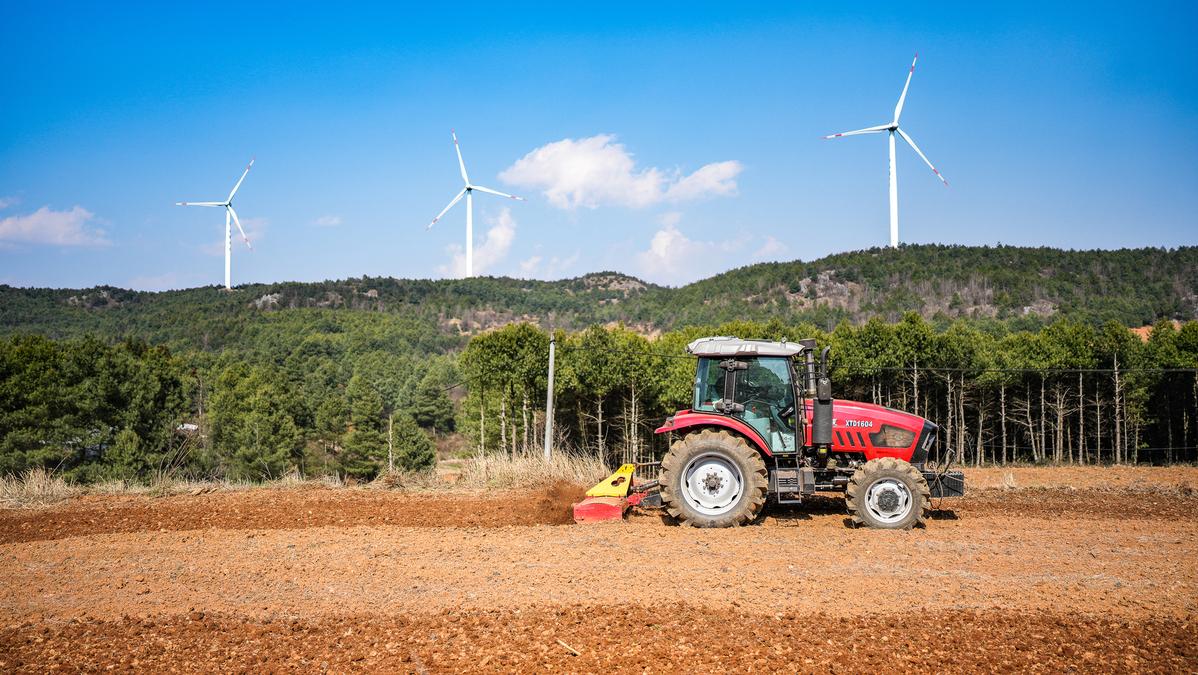
A farmer works in a field in Shayu village of Panzhou city, Guizhou province, Feb 9, 2023. [Photo/Xinhua]
China's journey toward eradicating absolute poverty has been monumental, and it is important to recognize the pivotal role that agriculture and rural development played in achieving this ambitious goal. The achievement has also brought China to the threshold of another important journey — sustaining the gains made over time and preventing the large-scale relapse of people into poverty, for which China needs to promote innovation.
As the representative of the International Fund for Agricultural Development in China, I advocate for a consolidated approach that harnesses the transformative power of agriculture and to step up investments in rural communities in order to prevent rural residents recently lifted out of rural poverty to slip into poverty again.
China's rural communities have long been the backbone of its economy, contributing significantly to national growth and prosperity. However, in the not so distant past, big challenges such as limited access to resources, inadequate infrastructure and the increasingly devastating impact of climate change-perpetuated poverty in rural areas. It was therefore important that the government embark on targeted interventions and comprehensively implement development policies to lift hundreds of millions of people out of absolute poverty by the end of 2020.
Central to these efforts has been the recognition of agriculture as a key driver for sustainable development. Agriculture provides livelihoods for a significant percentage of the rural population and also serves as a catalyst for broader economic transformation. By investing in rural communities, agricultural productivity, infrastructure and market-access mechanisms, we can unlock the potential of rural areas to drive inclusive growth and prosperity. This is what the IFAD brings to the development efforts in China.
One of the cornerstones of the successful poverty alleviation work in China has been the prioritization of targeted intervention tailored to the specific needs of different rural communities. From the implementation of agricultural innovation programs to the expansion of rural financial services, concerted efforts were made to empower smallholder farmers and marginalized groups.
By equipping them with the tools and resources they need to thrive, we can ensure the gains made by eradicating absolute poverty are not only sustainable but also transformative. Women and youth smallholder farmers are part of the marginalised groups the IFAD is working with in the era of digital innovation and market access for rural vitalization. For example, the Yunnan Rural Revitalization Demonstration Project introduced women entrepreneurs to share their experiences with classes of local women in agribusiness in Huaping county of Yunnan province, during which successful women entrepreneurs brought knowledge on procurement, sales and social media management.
Sustainable rural development hinges on addressing the other aspects of the multifaceted challenges facing rural communities, including access to education, healthcare and social protection. Investing in human capital and social infrastructure is essential for creating an enabling environment where rural residents can fully participate in, and benefit from, the broader development agenda.
As we look to the future, we eagerly await the report on the work of the government due to be released during the annual sessions of the National People's Congress and the Chinese People's Political Consultative Conference National Committee, which will provide the direction for the work to be done. It is clear that the journey toward consolidating the gains of poverty alleviation requires steadfast commitment and collaboration.
In this regard, the focus on the "three rural" aspects must define this new journey and so must the government's people-centred philosophy — because it all comes down to the people. Also, strengthening the role of science, technology and innovation, the construction of agricultural infrastructure and the vitalization of rural industries will be key to promoting farmers' individual income and economic growth.
The IFAD will continue to be the partner of choice to China in advancing its rural development agenda, leveraging the IFAD's expertise and resources to support innovative approaches and inclusive growth policies. The journey toward sustainable poverty alleviation in China has only just begun, and with a renewed focus on agriculture and green and low-carbon rural development, China can prevent people recently lifted out of poverty from slipping back into poverty on a large scale.
By investing in the resilience and well-being of rural communities, we not only safeguard the progress made, but also lay the foundation for a more prosperous and inclusive society with better food security and build a community of shared prosperity. Let us seize this opportunity to build a future where no one is left behind, and all people have an equal opportunity to flourish. Working together, we can ensure a brighter tomorrow for China's rural communities.
The author is country director for IFAD China, Mongolia and the DPRK.